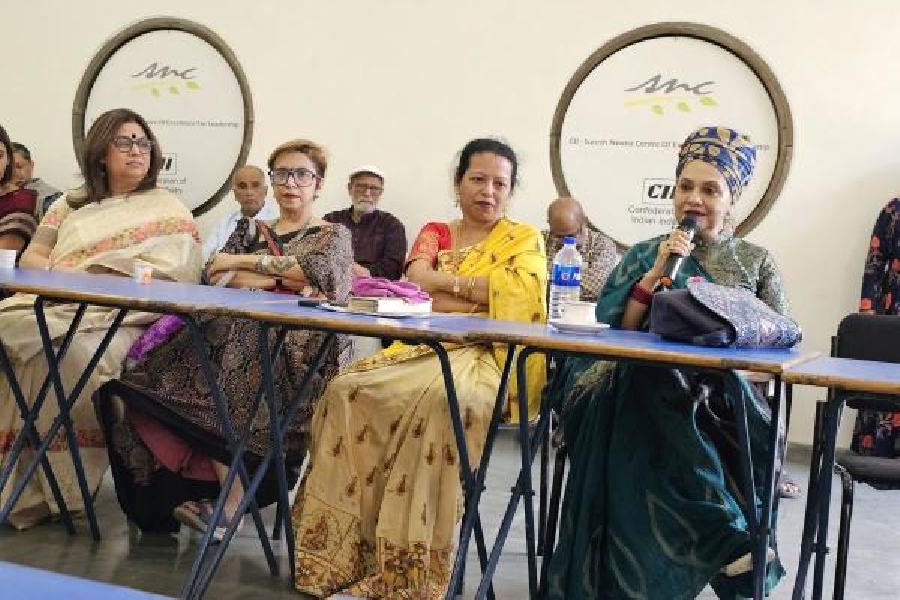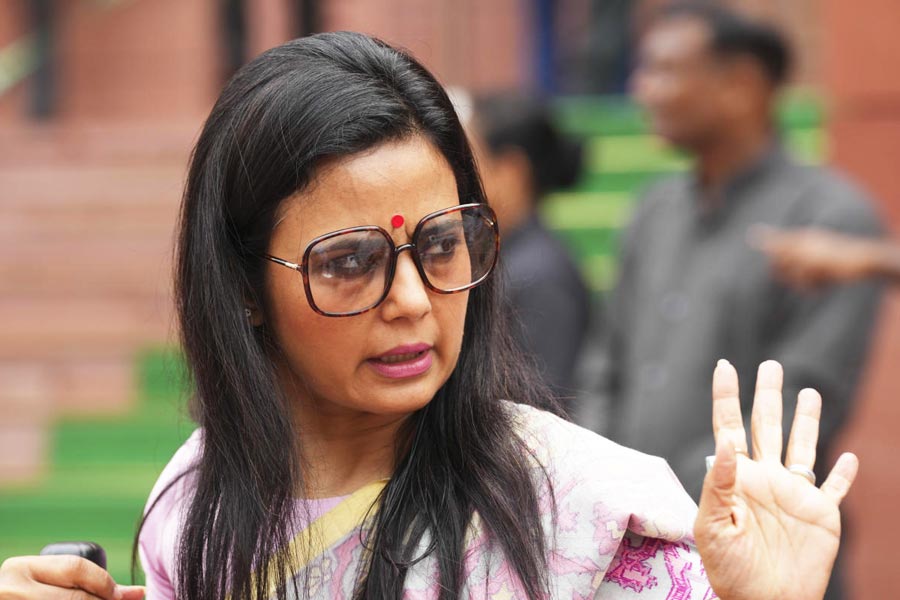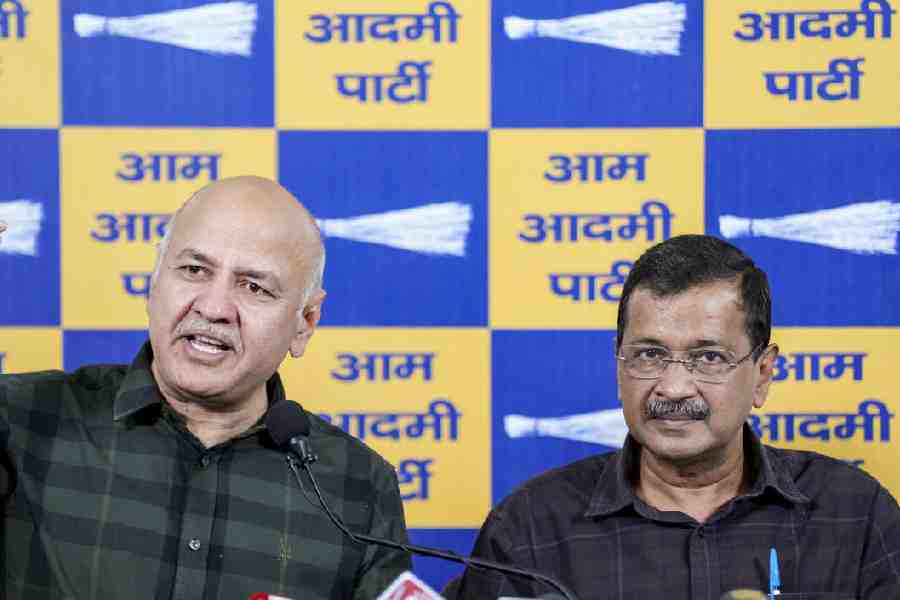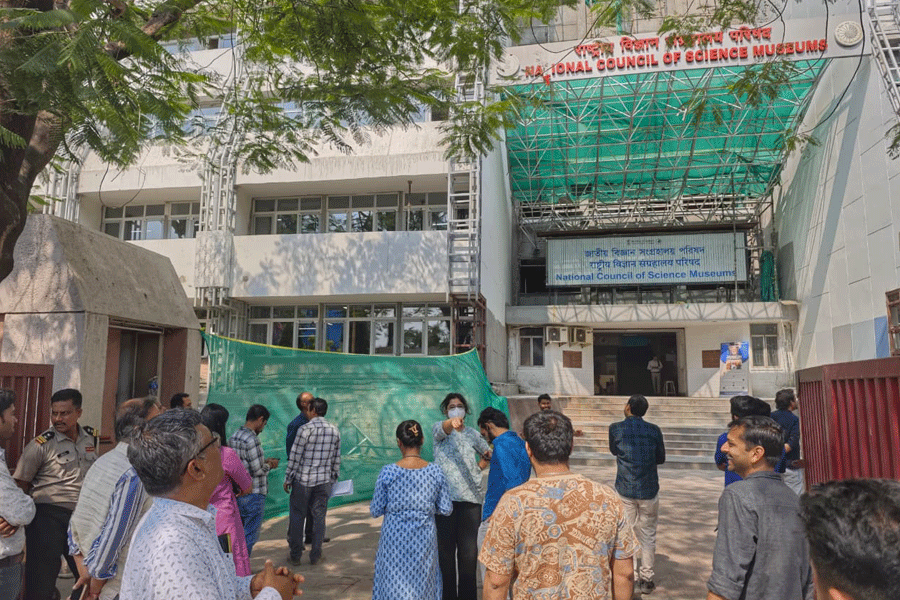A three-day conference at the Suresh Neotia Centre of Excellence for Leadership brought together Bengalis distinguished in their respective fields to discuss a range of issues related to education and literature, health and science under the umbrella of Bangla Worldwide.
The conference was inaugurated by Air Chief Marshal Arup Raha (retd) and former foreign secretary Harsh Vardhan Shringla, who started his speech in Bengali, having spent several years in the state.
There were cultural evenings too, with the opening event featuring Rezwana Chowdhury Banya and Bratati Bandyopadhyay.
Bangla Worldwide had germinated in the staff room of Indus Institute of Information Management in Kankurgachhi, which undertakes IT-related education-based programmes. “Our aim is to connect Bengalis across the globe, which includes Bangladeshis and those who love Bengali, even if not as mother tongue,” said co-ordinator Arpita Kanjilal.
The organisation came into being in 2019 through its website banglaworldwide.com. The first physical meeting took place in January 2020. “Through the pandemic period, we undertook a lot of activities online across our health, education and culture verticals. This is our fourth conference,” Kanjilal explained to The Telegraph Salt Lake.
The day also saw a discussion on the position of women in the international context. Moderated by retired bureaucrat Nandita Chatterjee, the session saw senior women professionals open up on the challenges they have faced along the way. “While there is gender parity at graduation and postgraduation levels in India, the scale becomes tilted at the PhD level. This means women lag in both research and college teaching. The balance becomes further skewed in leadership roles — i.e. the number of women vice-chancellors across universities,” said Monimala Das, a former vice-chancellor of Netaji Subhas Open University and a resident of EC Block. “Women are teaching in large numbers in schools where PhD is not needed,” she added.
Joyshree Roychowdhury, a former principal of several government colleges, recalled the red whistle she was handed as part of the kit when she went to study in Cambridge University in 1986. “We were required to keep it close through our stay. It was meant to damage the eardrums of attackers,” she explained.
“A lot of new government colleges have come up, even a women’s university, since 2011. There are more girl students in rural areas now. They have been given cycles. That may ensure mobility, but does it ensure safety?” Roychowdhury wondered, speaking of the lonely forest paths to schools and colleges in rural areas that she had surveyed in course of her tenure as director of public instruction. “Teachers who are posted there also face challenges of access,” added the former principal of Krishnanagar College, who was the first woman to occupy the post in 168 years.
The other hurdle women professionals face is a lack of faith — “parbe toh?”, commented retired bureaucrat Pritha Sarkar, who spoke of the challenge of work-life balance that women face. “Thanks to the internet, awareness is higher now. Women from remote corners aspire to sit for UPSC (Union Public Service Commission) examination. We have to create space for them,” she said.
Also present was Bashabi Fraser, Professor Emerita from the University of Edinburgh Napier, who spoke of her struggle as a woman of colour when she joined. “The Centre of South Asian Studies was then run exclusively by white men. I included works of Indian, Central Asian and African women.”
Lawyer Sunanda Goenka spoke of the gap between laws existing on paper and their implementation, citing women who claimed their rights like Shah Bano who claimed maintenance after divorce and Nargesh Meerza who protested discrimination in the aviation sector.
Cancer specialist Madhuchhanda Kar wondered about the attitude of women patients towards doctors. “A lady consulted me for breast cancer, kept my fees on the table, but while leaving, she took it back, saying she did not want to be treated by a female oncologist,” she said.
Dancer and social activist Alokananda Roy said one could manoeuvre around biological problems, but gender became a hurdle if one dwelt on it.










